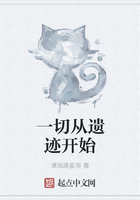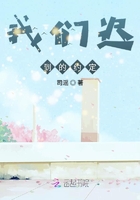When the faithful Nanon appeared in the market, many quips and quirks and complaints about the master whistled in her ears; but however loudly public opinion condemned Monsieur Grandet, the old servant defended him, for the honor of the family.
"Well!" she would say to his detractors, "don't we all get hard as we grow old? Why shouldn't he get horny too? Stop telling lies.
Mademoiselle lives like a queen. She's alone, that's true; but she likes it. Besides, my masters have good reasons."At last, towards the end of spring, Madame Grandet, worn out by grief even more than by illness, having failed, in spite of her prayers, to reconcile the father and daughter, confided her secret troubles to the Cruchots.
"Keep a girl of twenty-three on bread and water!" cried Monsieur de Bonfons; "without any reason, too! Why, that constitutes wrongful cruelty; she can contest, as much in as upon--""Come, nephew, spare us your legal jargon," said the notary. "Set your mind at ease, madame; I will put a stop to such treatment to-morrow."Eugenie, hearing herself mentioned, came out of her room.
"Gentlemen," she said, coming forward with a proud step, "I beg you not to interfere in this matter. My father is master in his own house.
As long as I live under his roof I am bound to obey him. His conduct is not subject to the approbation or the disapprobation of the world;he is accountable to God only. I appeal to your friendship to keep total silence in this affair. To blame my father is to attack our family honor. I am much obliged to you for the interest you have shown in me; you will do me an additional service if you will put a stop to the offensive rumors which are current in the town, of which I am accidentally informed.""She is right," said Madame Grandet.
"Mademoiselle, the best way to stop such rumors is to procure your liberty," answered the old notary respectfully, struck with the beauty which seclusion, melancholy, and love had stamped upon her face.
"Well, my daughter, let Monsieur Cruchot manage the matter if he is so sure of success. He understands your father, and how to manage him. If you wish to see me happy for my few remaining days, you must, at any cost, be reconciled to your father."On the morrow Grandet, in pursuance of a custom he had begun since Eugenie's imprisonment, took a certain number of turns up and down the little garden; he had chosen the hour when Eugenie brushed and arranged her hair. When the old man reached the walnut-tree he hid behind its trunk and remained for a few moments watching his daughter's movements, hesitating, perhaps, between the course to which the obstinacy of his character impelled him and his natural desire to embrace his child. Sometimes he sat down on the rotten old bench where Charles and Eugenie had vowed eternal love; and then she, too, looked at her father secretly in the mirror before which she stood. If he rose and continued his walk, she sat down obligingly at the window and looked at the angle of the wall where the pale flowers hung, where the Venus-hair grew from the crevices with the bindweed and the sedum,--a white or yellow stone-crop very abundant in the vineyards of Saumur and at Tours. Maitre Cruchot came early, and found the old wine-grower sitting in the fine June weather on the little bench, his back against the division wall of the garden, engaged in watching his daughter.
"What may you want, Maitre Cruchot?" he said, perceiving the notary.
"I came to speak to you on business."
"Ah! ah! have you brought some gold in exchange for my silver?""No, no, I have not come about money; it is about your daughter Eugenie. All the town is talking of her and you.""What does the town meddle for? A man's house is his castle.""Very true; and a man may kill himself if he likes, or, what is worse, he may fling his money into the gutter.""What do you mean?"
"Why, your wife is very ill, my friend. You ought to consult Monsieur Bergerin; she is likely to die. If she does die without receiving proper care, you will not be very easy in mind, I take it.""Ta, ta, ta, ta! you know a deal about my wife! These doctors, if they once get their foot in your house, will come five and six times a day.""Of course you will do as you think best. We are old friends; there is no one in all Saumur who takes more interest than I in what concerns you. Therefore, I was bound to tell you this. However, happen what may, you have the right to do as you please; you can choose your own course. Besides, that is not what brings me here. There is another thing which may have serious results for you. After all, you can't wish to kill your wife; her life is too important to you. Think of your situation in connection with your daughter if Madame Grandet dies. You must render an account to Eugenie, because you enjoy your wife's estate only during her lifetime. At her death your daughter can claim a division of property, and she may force you to sell Froidfond.
In short, she is her mother's heir, and you are not."These words fell like a thunderbolt on the old man, who was not as wise about law as he was about business. He had never thought of a legal division of the estate.
"Therefore I advise you to treat her kindly," added Cruchot, in conclusion.
"But do you know what she has done, Cruchot?""What?" asked the notary, curious to hear the truth and find out the cause of the quarrel.
"She has given away her gold!"
"Well, wasn't it hers?" said the notary.
"They all tell me that!" exclaimed the old man, letting his arms fall to his sides with a movement that was truly tragic.
"Are you going--for a mere nothing,"--resumed Cruchot, "to put obstacles in the way of the concessions which you will be obliged to ask from your daughter as soon as her mother dies?""Do you call six thousand francs a mere nothing?""Hey! my old friend, do you know what the inventory of your wife's property will cost, if Eugenie demands the division?""How much?"















